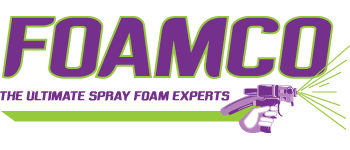Understanding the Temperature Requirements for Spray Foam Insulation
Spray foam insulation is a popular choice for improving energy efficiency and sealing air leaks in homes. However, it's essential to consider the temperature requirements for the proper application of spray foam insulation. In this blog post, we will explore the temperature range necessary for successful spray foam insulation installation and discuss the factors that influence these requirements.
Understanding Temperature Range for Spray Foam Insulation: The optimal temperature range for applying spray foam insulation typically falls between 60°F (16°C) and 90°F (32°C). Both the air temperature and the surface temperature of the area being insulated play important roles in achieving a successful installation. Here's why:
Chemical Reaction: Spray foam insulation consists of two components—polyol resin and isocyanate—that react when mixed together. This chemical reaction allows the foam to expand and cure. The reaction rate is influenced by temperature, and extreme temperatures outside the recommended range can affect the expansion and curing process. If the temperature is too low, the foam may not expand properly or may take longer to cure. Conversely, if the temperature is too high, the foam may expand too quickly, resulting in an inadequate application.
Adhesion and Bonding: To ensure effective adhesion and bonding, the surface temperature of the area being sprayed should be within the recommended range. If the surface is too cold, it may cause condensation, which can compromise the adhesion of the spray foam to the substrate. On the other hand, if the surface temperature is too high, it can interfere with the adhesion process and lead to poor bonding.
Factors Affecting Temperature Requirements: While the general temperature range for spray foam insulation is between 60°F and 90°F, several factors can influence the specific requirements for successful installation:
Manufacturer Guidelines: It's crucial to consult the manufacturer's guidelines and specifications for the specific spray foam insulation product you are using. Manufacturers often provide detailed information on temperature requirements and any limitations associated with their product. Following these guidelines ensures that you achieve the best results and maintain any applicable warranties.
Building Envelope Conditions: The temperature of the building envelope, including the air temperature and the surface temperature of the area to be insulated, should be within the recommended range. This may require adjusting the ambient temperature or using additional heating or cooling methods to bring the area within the suitable range.
Humidity and Moisture Levels: High humidity or moisture levels can affect the adhesion and curing process of spray foam insulation. It's important to ensure that the area being sprayed is dry and free from excess moisture. If necessary, dehumidification measures can be employed to create a suitable environment for insulation application.
Professional Expertise: For optimal results, it is advisable to work with professional spray foam insulation installers who have experience and knowledge of proper application techniques. They can assess the specific temperature requirements for your project, consider the local climate conditions, and ensure that the installation is conducted within the suitable temperature range.
To achieve a successful spray foam insulation installation, it is crucial to adhere to the recommended temperature range. Keeping the air and surface temperature within the range of 60°F to 90°F ensures proper expansion, curing, adhesion, and bonding of the foam. Consult the manufacturer's guidelines, consider building envelope conditions, manage humidity and moisture levels, and seek professional expertise when necessary. By paying attention to temperature requirements, you can achieve optimal results and enjoy the energy efficiency benefits of properly installed spray foam insulation in your home.
